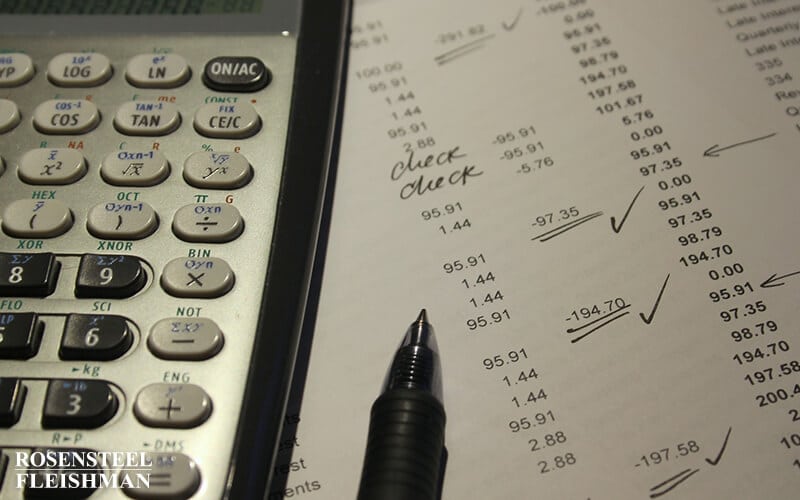Criminal Defense Lawyer for Writing Worthless Checks

Writing a bad check may seem like a simple oversight, but in North Carolina, it can lead to criminal charges with serious consequences, including potential jail time and fines. Even unintentional mistakes can be prosecuted, making it essential to take these charges seriously. If you’ve been accused of writing a worthless check, speaking with a knowledgeable criminal defense attorney can make a meaningful difference in the outcome of your case. Contact Mr. Rosensteel today to discuss your options and take the first step toward resolving the matter effectively.
North Carolina Worthless Check Writing Definition
North Carolina statute makes it a crime for a person to issue a check when that person knows at the time of issuing the check that there are insufficient funds in the account to pay the check or the person has previously presented the check for payment.
The elements required to prove that a person has violated the worthless checks statute are:
- the person charged issued a check to another
- such person had insufficient funds on deposit in or lack of credit with the drawee bank with which to pay the check upon presentation
- at the time the check was written, the issuer knew that there were insufficient funds or lack of credit with which to pay the check upon presentation
Looking For A Charlotte Lawyer Near You?
If the amount of the worthless check is more than $2,000, a person who violates this statute is guilty of a Class I felony. North Carolina law provides that a person who commits a Class I felony must receive a sentence between 3 and 12 months, depending on the person’s prior convictions. A person with no prior convictions must receive a community punishment, but the court is permitted to sentence a person with prior convictions to active jail time.
If the amount of the worthless check is $2,000 or less, a person who violates this statute is guilty of a Class 3 misdemeanor. Punishment for a Class 3 misdemeanor ranges from 1-20 days, depending on whether the person has any prior convictions. A person with no prior convictions must receive community punishment, but a person with prior convictions can receive active jail time as punishment.
Check
A check is a present unconditional order to a bank or financial institution to pay a certain sum of money to the order of a named person or to the bearer of the instrument. North Carolina courts have held that a post-dated check is not covered under the statute because a post-dated check indicates an agreement between the parties that on the future date the drawer expects to have sufficient funds and therefore does not fall under the definition of a check.
Knowledge
To violate the worthless checks statute, a person must know that there were insufficient funds at the time he issues the check. Because knowledge goes to a person’s mental state, it is usually very difficult to prove through direct evidence. Usually, knowledge must be inferred from the surrounding circumstances. Knowledge can be inferred if there is evidence showing that the issuer of a check issued other worthless checks during the same time period. Knowledge can also be inferred when a person issues a check right after depositing money into his account, knowing that the money deposited is not immediately available for use.
However, North Carolina courts have stated that “the mere issuing of a check which is returned due to insufficient funds or lack of credit, without more, is not evidence from which the requisite knowledge can be inferred.” The courts reasoned that allowing such an inference would essentially remove the knowledge requirement from the crime and could raise questions regarding the constitutionality of the statute.
Restitution
The North Carolina worthless checks statute provides that, when deciding to impose any sentence other than an active prison sentence on a person found guilty of violating the worthless checks statute, the court may require a defendant to pay restitution for the amount of the checks and any service charges or fees charged.
Elevating Factors for Misdemeanor Worthless Checks
Typically, if a person violates the worthless check statue and the amount of the check is $2,000 or less, the person is guilty of a Class 3 misdemeanor. However, there are a few circumstances which can elevate the offense to a Class 1 misdemeanor. They are:
- the check is drawn upon a nonexistent account
- the check is drawn upon an account that the drawer knew was closed.
- the person has been previously convicted three or more times of violating the worthless check statute.
North Carolina law provides that a person who commits a Class 1 misdemeanor must receive a sentence between 1 and 120 days, depending on the person’s prior convictions. A person with no prior convictions must receive a community punishment, but the court is permitted to sentence a person with prior convictions to active jail time.
Speak to a Charlotte, NC Criminal Lawyer Today
Writing worthless checks is a serious criminal offense in North Carolina and can result in significant consequences if you are convicted. The penalties for writing worthless checks may include fines, imprisonment, or both. It is important to take these charges seriously and seek the assistance of an experienced criminal defense lawyer as soon as possible.
At Rosensteel Fleishman Car Accident & Injury Lawyers, our team of criminal defense attorneys has extensive experience representing clients charged with writing worthless checks. We understand the legal process and the strategies that can be used to defend against these charges. Our goal is to protect your rights and help you achieve the best possible outcome in your case.
Our experienced criminal defense lawyers will work with you to evaluate the evidence against you and develop a strong defense strategy. We will thoroughly review all of the facts in your case and advise you on your legal options. We will also represent you in court and negotiate with the prosecution to try to reach a favorable settlement.
If you have been charged with writing worthless checks, don't wait to take action. Contact an experienced criminal defense lawyer at Rosensteel Fleishman Car Accident & Injury Lawyers (704) 714-1450 today to schedule your free consultation and case evaluation. Our dedicated team of criminal defense attorneys is here to help you understand your rights and protect your interests.
